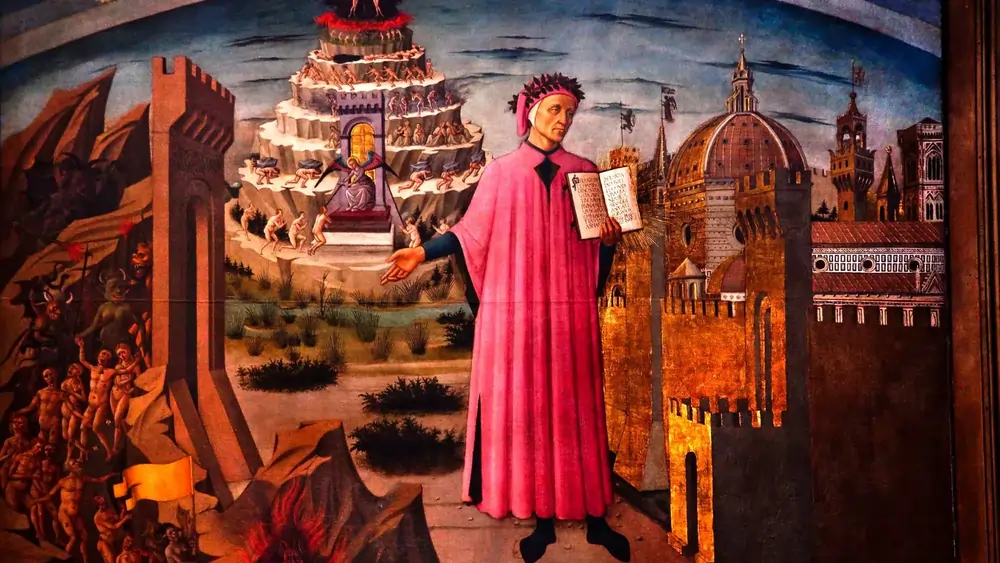

Dante Alighieri, el OG de la poesía italiana y uno de los más grandes poetas de la Edad Media, nació en Florencia en 1265 y murió en Rávena en 1321. Pero seamos realistas, su legado sigue más vivo que nunca gracias a su obra maestra, la Divina Comedia.
Este poema épico se divide en tres partes: Infierno, Purgatorio y Paraíso, y es básicamente un viaje a través del Más Allá con Virgilio como su guía turístico. En el camino, conocerás personajes históricos, criaturas mitológicas y figuras contemporáneas de Dante.
Uno de los aspectos más fascinantes de la Divina Comedia es su uso de la alegoría. Dante utiliza personajes y escenarios simbólicos para transmitir significados profundos sobre la naturaleza humana, la moralidad y la divinidad. En el Infierno, por ejemplo, las almas son castigadas en diferentes círculos, cada uno correspondiente a un pecado distinto.
Además de su riqueza literaria, la obra de Dante tuvo un impacto cultural y político. Al escribir en dialecto toscano, estableció las bases del italiano moderno. Además, usó su poema para criticar la situación política de su tiempo.
El Infierno de Dante no es solo un catálogo de castigos, sino un comentario sobre la condición humana, el pecado y la posibilidad de redención. Pero no olvidemos que también es muy entretenido.
Uno de los episodios más impactantes del Infierno de Dante es la historia del Conde Ugolino. Acusado falsamente de traición por el arzobispo Ruggieri, fue encerrado en una torre con sus hijos y nietos. Sin comida, fueron muriendo uno a uno. En su desesperación, Ugolino terminó devorando los cadáveres de sus propios hijos.
En el infierno, su castigo es macabro: está congelado en el hielo, devorando eternamente la cabeza de Ruggieri como símbolo de su odio y su tragedia.
En el octavo círculo, los falsificadores y embaucadores son castigados de manera personalizada. Algunos son azotados por demonios, otros arden en llamas, y los hipócritas llevan capas de plomo que los aplastan bajo su propio peso.
Estos castigos representan el peso moral de sus engaños en vida.
Dante no era solo un poeta, sino un hombre con una vida personal y política intensa. Uno de los aspectos más famosos de su vida fue su amor por Beatrice Portinari. La conoció cuando tenía nueve años y se enamoró de inmediato. Aunque Beatrice se casó con otro, Dante la inmortalizó en su obra como su guía en el Paraíso.
En política, Dante fue miembro de los Guelfos Blancos, oponiéndose a la facción de los Guelfos Negros en Florencia. Debido a sus ideas, fue exiliado en 1302 y nunca más pudo volver a su ciudad natal. Pasó el resto de su vida en el exilio, escribiendo cartas, discursos y su obra maestra.
Murió en Rávena en 1321, pero su legado sigue vivo. Su trabajo sigue siendo estudiado en todo el mundo, y su influencia en la literatura es incuestionable.
Así que, si aún no has leído la Divina Comedia, es el momento perfecto para sumergirte en este viaje épico desde el Infierno hasta el Paraíso.